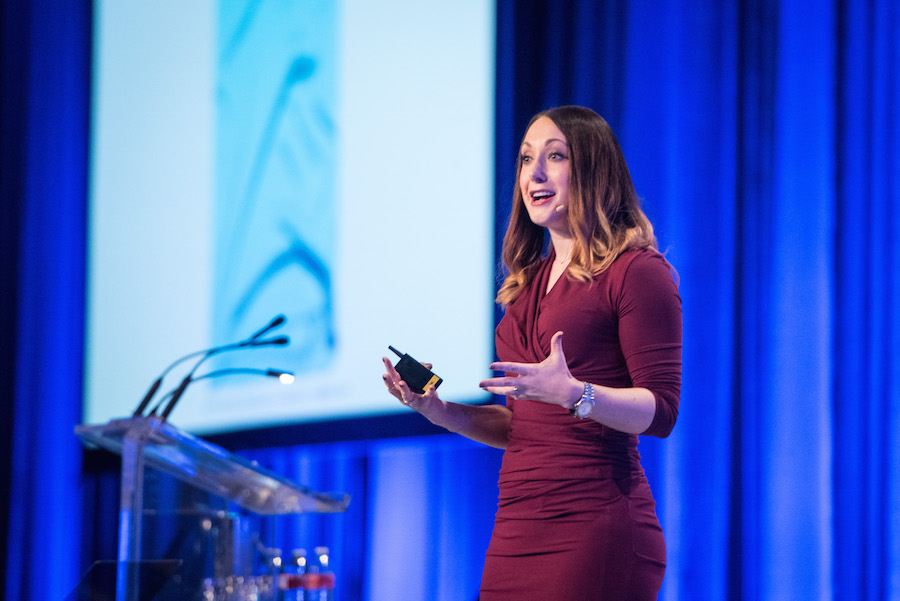Why It’s Important to Understand What People Really Think of You

If internal self-awareness means gaining insight by looking inward, external self-awareness means turning our gaze outward to understand how we are seen. And no matter how hard we try, we simply cannot do this on our own.
We live in a world where people usually don’t tell us the truth about ourselves. Stir in our uneasy reluctance to ask for it and this is a recipe for blissful ignorance. Indeed, for many people, the mere thought of finding out how others see us can conjure up many fears and insecurities (“You really do look fat in those jeans” or “Your presentation was incoherent and underwhelming” or “You were insufferably arrogant when you were 26”). Though finding out how others see us can be scary, intimidating, or downright painful, it’s far, far better than the alternative.
Imagine for a moment that it’s a Monday at your office. After a quick mid-morning bathroom break, you return with a long strip of toilet paper stuck to the bottom of your shoe, a fact to which you are completely oblivious. As you make the long walk back to your office, your co-workers begin snickering. “Did you see that?” they ask each other—yet to you, they say nothing. And little do they know that you’re headed to a meeting with an important client. When you and your unintentional accessory enter the conference room, your client smiles bemusedly, and also stays mum. Then, despite an otherwise successful meeting, she concludes that you’re scatterbrained and slovenly and decides not to give you more of her business. If just one of your co-workers had pulled you aside, you’d have been spared the whole embarrassing and costly ordeal.
Now, it’s rare not to wonder, at one point or another, what people are saying about us when we leave the room. But rather than indulge this urge, most people stubbornly cling to their blissful ignorance. Since no one has told me otherwise, we decide, I must know everything I need to know about . Of course, this instinct is understandable—as we’ve seen, the cold hard truth can be hard to hear. But by avoiding it, we risk two equally unappealing outcomes. The first is that we don’t learn the truth about the behaviors that are holding us back and are doomed to walk around with metaphorical toilet paper stuck to our shoe while people snicker behind our backs. The second is that we do eventually learn it—through an accidentally overheard conversation, a “come-to Jesus moment”, or a beer-fueled admission at a dive bar—in a way that blindsides us, or at a time when it’s too late to do anything about what we’ve learned.
The saying that “feedback is a gift” is such a painful cliché that we often forget how true it really is. And we need this gift for one simple reason: other people generally see us more objectively than we see ourselves.
In fact, even complete strangers—that is, people we have never met face-to-face—can see us disconcertingly accurately. Researcher David Funder and his colleagues compared how undergraduates were rated by those who knew them well (parents, friends, and roommates), those who knew them casually (college and hometown acquaintances), and people they’d never met (strangers shown just a five-minute video of them) on roughly 70 personality traits. The ratings of all three groups were astonishingly accurate: a match for all but three traits! The groups also tended to see similar qualities in the participants, regardless of how well they actually knew them. The surprising take-home is that even people you don’t know well can be a valuable and accurate source of feedback.
Yet given all this, it’s still tempting to think that we know us better than anyone could ever know us (after all, we live with ourselves every day, right?). When we see our reflection in a mirror, it’s easy to conclude that this is the only, and therefore the most accurate, representation of ourselves. It’s also far easier and safer to gaze at our reflection than face the possibility that others might not see us the same way. But gazing inward is a necessary but not sufficient condition for total insight.
Put simply, self-awareness is not one truth. It’s a complex interweaving of our views and others’ views of us. Indeed, according to studies on this topic, these two different perspectives, rather than capturing redundant information, may simply capture different aspects of who we are. If we have only internal or only external self-awareness, we’re missing a huge piece of the puzzle. So even though we should take others’ views of us seriously, they also shouldn’t define us or completely override our self-image; the key is learning how to evaluate the feedback we receive and determine how—and where—to act on it.
Reprinted (or Adapted) from INSIGHT: Why We’re Not as Self-Aware as We Think, and How Seeing Ourselves Clearly Helps Us Succeed at Work and in Life © 2017 by Tasha Eurich. Published by Crown Business, an imprint of Penguin Random House LLC.
Photo credit: The Art of
READ MORE STORIES THAT MOVE HUMANITY FORWARD
READ MORE STORIES THAT MOVE HUMANITY FORWARD
SIGN UP FOR MARIA’S SUNDAY PAPER
